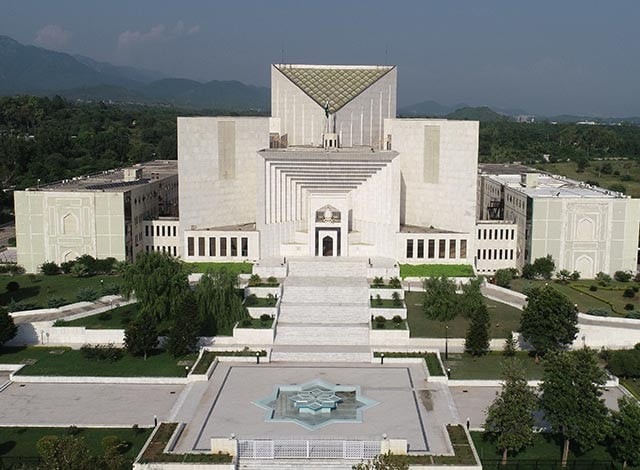SC orders ‘humane treatment’ in civilian trials by military courts
AGP assures that family meetings with detainees would resume immediately, allowing one day per week

The Supreme Court of Pakistan on Thursday directed that detainees involved in civilian trials in military courts must receive "humane" treatment.
A seven-member larger bench, led by Justice Amin-ud-Din Khan, convened to hear the appeals concerning the trial of civilians in military courts.
Brigadier Imran, the focal person for detainees' meetings, appeared before the court.
During the proceedings, lawyer Latif Khosa highlighted a case where a detainee was not allowed to meet his family, resulting in him missing the funeral of his five-year-old child.
Justice Irfan Saadat emphasized to the Attorney General that the inhumane treatment of detainees is unacceptable.
Following this, Justice Muhammad Ali Mazhar questioned the discontinuation of the weekly family visits for detainees, stating, "You previously stated that detainees could meet their families every week. Why has this practice stopped?"
In response, the Attorney General assured the court that family meetings with detainees would resume immediately, allowing one day per week for such interactions.
Justice Muhammad Ali Mazhar also advised the AG that any errors in the original judgment must be identified, as the appellate court focuses on correcting mistakes in the initial decision.
Justice Jamal Mandokhail issued a directive ensuring that detainees are not subjected to inhumane treatment and further questioned why detainees were not transferred to jail if their physical remand had ended.
The AG then clarified that judicial remand is not applicable in military courts.


















COMMENTS
Comments are moderated and generally will be posted if they are on-topic and not abusive.
For more information, please see our Comments FAQ